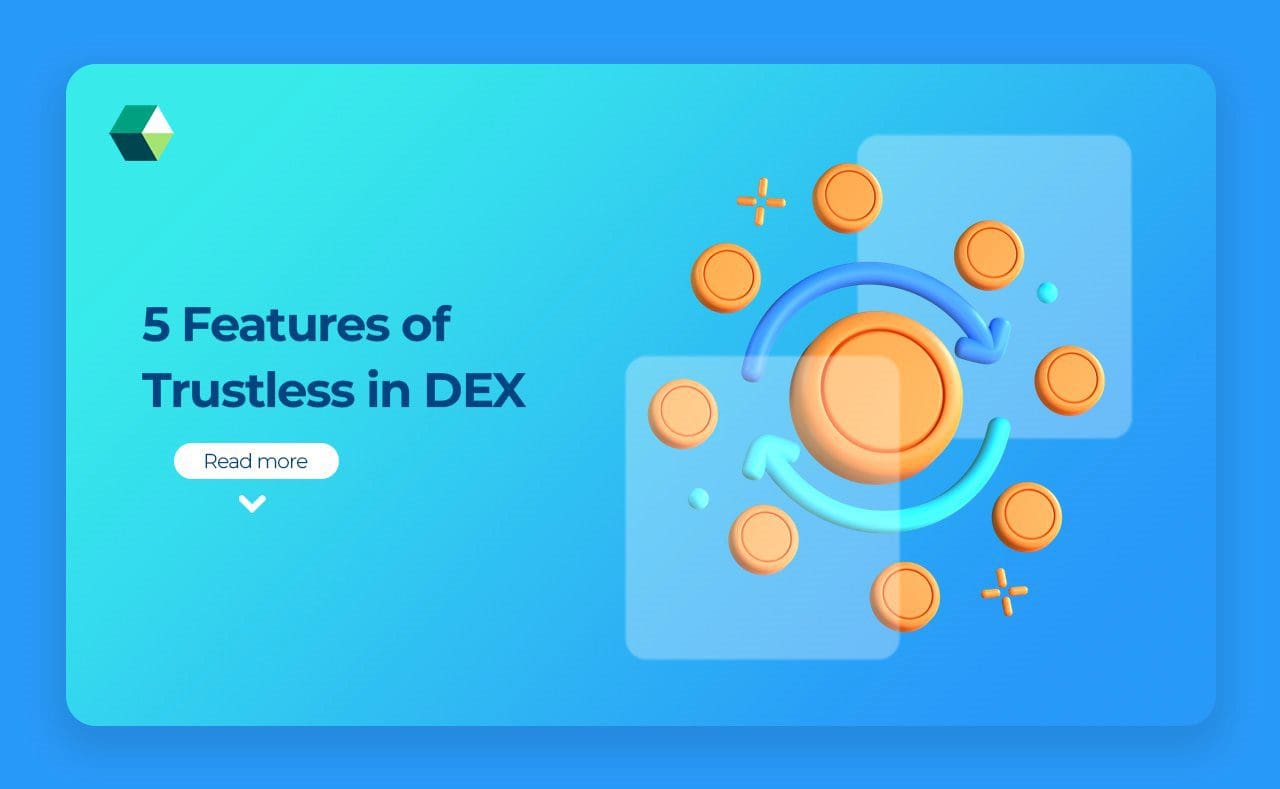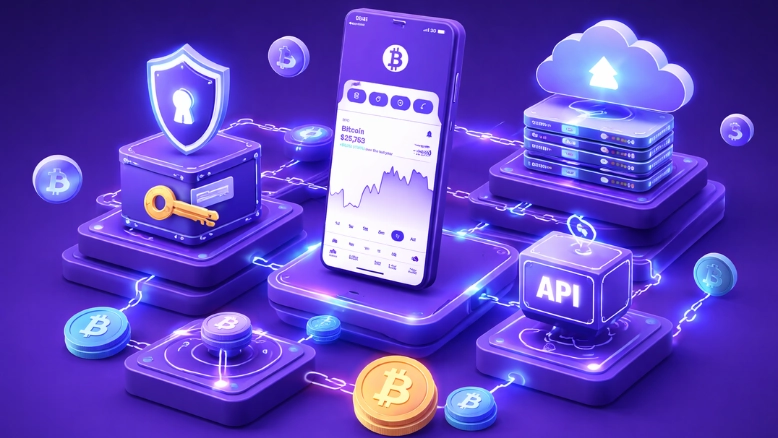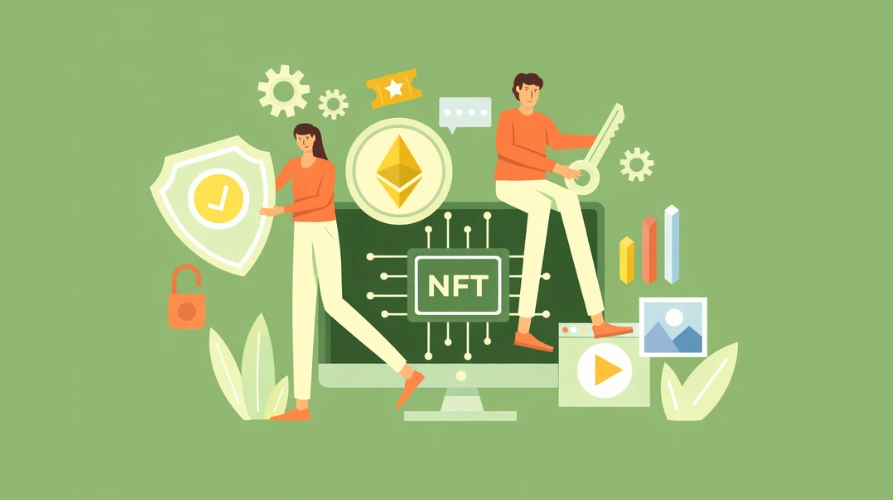Decentralized Exchanges (DEXs) are transforming the landscape of digital asset trading by offering a trustless and secure environment for users to transact without relying on a Central Authority. Trustless is a defining characteristic of DEXs that ensures transparency, security, and autonomy for users. Trustless refers to the ability of a system to function without requiring participants to place trust in any single entity or intermediary. In the case of DEXs, trustlessness is achieved through blockchain technology, and Cryptographic Protocols, ensuring that transactions are secure, transparent, and immune to tampering or censorship.
What is Trustless in DEX?
The term “trustless” refers to a system or protocol that operates without requiring participants to place trust in a central authority or intermediary. A trustless environment is essential for DEX platforms, which aim to provide a decentralized and transparent trading experience. Trustless mechanisms are fundamental to achieving the core objectives of Decentralized Exchange Development, which include increased transparency, security, and user autonomy in the trading process. In a trustless DEX, smart contracts facilitate transactions and enforce rules automatically, ensuring that trades are executed according to the pre-defined logic without relying on a central entity. This approach significantly reduces the risk of fraud and manipulation, as the Smart Contract Code is visible and verifiable by all participants.
How Does Trustless Enhance Security in DEXs?
Trustless mechanisms play a crucial role in enhancing security within Decentralized Exchanges (DEXs), fundamentally reshaping how transactions are conducted. A trustless environment ensures that trades and exchanges are managed by smart contracts rather than relying on intermediaries or centralized authorities. This reduces the potential for human error, fraud, and manipulation, as all operations are governed by code that executes automatically based on predefined rules. Additionally, trustless systems ensure that users retain full control over their assets throughout the trading process, further enhancing security and mitigating risks associated with centralized exchanges. Through these measures, DEX Software Development Services can deliver a more secure, reliable, and resilient trading environment for users.
5 Features of Trustless in DEX
-
Smart Contract Automation
Trustless DEXs utilize smart contracts to automatically execute trades and enforce rules without the need for a central authority. This ensures that transactions are completed accurately and transparently based on pre-defined conditions.
-
Decentralized Control
In a trustless system, control is distributed across the network rather than being held by a single entity. This decentralization minimizes the risk of centralized points of failure and reduces the potential for malicious interference.
-
Transparency
All transactions and contract executions are recorded on the blockchain, providing a transparent and Immutable Ledger. This transparency allows users to verify and audit transactions independently, enhancing trust and accountability.
-
Security and Privacy
Trustless DEXs enhance security by eliminating the need for users to trust intermediaries. Assets remain under user control throughout the transaction process, and smart contracts ensure that trades are executed as specified without exposing sensitive data.
-
Reduced Risk of Fraud
By removing intermediaries and relying on automated smart contracts, trustless systems significantly lower the risk of fraud and manipulation. The decentralized nature of these exchanges ensures that the integrity of transactions is maintained without relying on the trustworthiness of any single party.
Role Trustless Play in DEX
In Decentralized Exchange Software Development, trustless mechanisms play a pivotal role by eliminating the need for central authorities or intermediaries in the trading process. Trustless Systems rely on smart contracts, including Composable Smart Contracts, to automate and enforce trade rules, which significantly enhances security and transparency. By operating on a blockchain, these systems ensure that all transactions are executed according to predefined code, reducing the risk of manipulation and fraud. The trustless nature of DEXs ensures that users maintain control over thttps://www.nadcab.com/blog/composability-in-dexheir assets throughout the transaction process. Since trades are facilitated directly by smart contracts without requiring trust in a central entity, participants can trade with confidence, knowing that their assets are secure and the trading environment is transparent.
Challenges Developers Face in Creating a Trustless
A DEX Development, creating a trustless system involves overcoming several significant challenges. One major hurdle is ensuring the security and reliability of smart contracts, which are central to executing and enforcing trades automatically. Since these contracts are responsible for managing all transactions, even minor vulnerabilities or coding errors can expose the system to exploitation and financial losses. Developers must invest in comprehensive testing and auditing processes to address these security concerns and protect users from potential threats.
Additionally, scalability and user experience present ongoing challenges. Trustless systems can struggle with transaction speed and throughput due to their decentralized nature, requiring developers to implement innovative solutions to maintain performance under high trading volumes. Balancing security with user accessibility is also crucial, as complex interfaces can hinder user engagement. Furthermore, navigating regulatory compliance while upholding the principles of decentralization adds another layer of complexity to the development process. Addressing these challenges is essential for building effective and resilient trustless DEX platforms.
Future Innovations Happening in Trustless
-
Advanced Layer 2 Solutions
Innovations in Layer 2 Technologies, such as Rollups and State Channels, aim to improve scalability and reduce transaction costs while maintaining the trustless nature of DEXs.
-
Cross-Chain Interoperability
Emerging technologies are focusing on enabling trustless interactions between different blockchain networks. Cross-chain protocols and bridges will allow users to trade assets across various blockchains.
-
Decentralized Identity and KYC
Future developments include decentralized identity solutions that facilitate trustless Know Your Customer (KYC) Processes. These innovations aim to enhance privacy while ensuring compliance.
-
Automated Market Makers (AMMs) Enhancements
Ongoing research is improving AMM Algorithms to provide better liquidity management, lower slippage, and more efficient pricing mechanisms.
Why Partner With Nadcab Labs For Trustless Trading?
Partnering with Nadcab Labs for trustless trading solutions is a smart choice due to their expertise as a leading Blockchain Development Company. They offer advanced solutions in decentralized systems, ensuring secure, transparent, and efficient trading. With their experience in overcoming scalability and performance challenges, Nadcab Labs can deliver a robust trustless trading platform that meets both current and future needs, making them an ideal partner for innovative blockchain solutions. Their proficiency in Smart Contract Development and decentralized protocols ensures that trustless mechanisms are seamlessly integrated into your trading platform.







